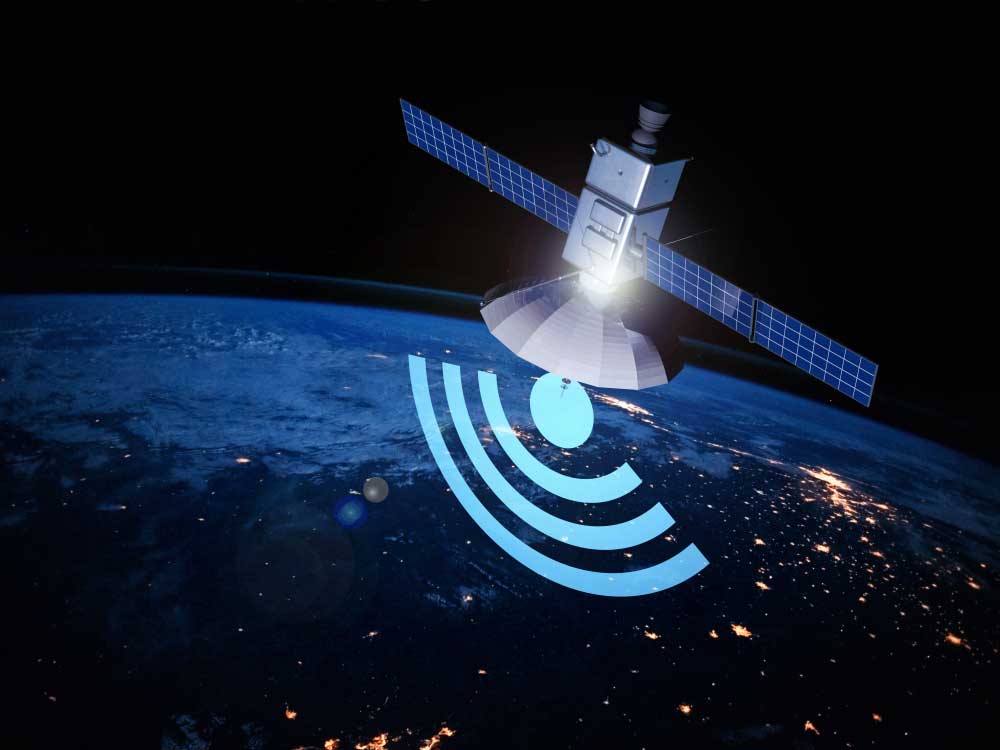Are you looking for the best internet for RV living? Finding reliable coverage can be challenging with traditional providers — like cable, DSL, and satellite connections. Here, our comprehensive guide has got you covered.
We’ll explain why mobile-based solutions are becoming increasingly popular among road warriors intent on getting connected no matter where their travels take them.
Table of Contents
- RV Living Internet Selection Criteria
- Best internet for RV living
- How to Make the Most of Your RV Internet Solution
- Other RV Internet Options
- What’s the easiest RV Internet option?
- FAQs
- Conclusion
RV Living Internet Selection Criteria
1.1 Budget
When selecting an internet for RV living, begin by assessing your budget.
Free services to luxurious packages exist as options, and depending on how much you’re willing to spend upfront can affect the array of alternatives open to you.
Even if your resources are limited, satisfactory internet access while traveling is attainable.
Try estimating what you’ll spend each year using the RV life budget calculator!
1.2 Type of Internet Usage
Regarding RV internet, do not settle for a subpar option if your purpose is telecommuting.
A dependable connection with high speeds and stability should be the priority of any professional who needs reliable videoconferencing.
Other solutions may suffice if you want to save money as a digital nomad or want leisurely online browsing.
Still, streaming TV requires an entirely different set of technologies than usual web surfing.
1.3 Data Usage
When selecting an RV internet provider, it’s essential to consider your data usage. Most mobile plans have monthly caps regarding how much data you can use.
Before making a choice, track your current usage for at least one month and break down the numbers between work-related activities, entertainment streaming, and TV services.
Take advantage of an online calculator to make rapid decisions based on estimated household internet consumption habits calculations.
1.4 Boondocking Frequency
When deciding on an RV Internet provider, it is important to consider your camping preferences and destination.
While there may be fewer options in remote areas, larger RV parks offer a wider range of possibilities.

RV park
Best internet for RV living
2.1 Free Wi-Fi hotspots
If your RV doesn’t have Wi-Fi, you can find free hotspots in cities and campgrounds. You will get complimentary internet connections at places like Space Needle or Starbucks.
However, keep in mind that these are limited only to certain areas. It’s also important to note that public networks may not always be secure.
Alternatively, many RV parks offer free Wi-Fi for their guests; make sure it is large enough with good reception.
And lastly, don’t forget about cellular boosters – they can significantly improve your cell signal strength and camping experience overall!

An image of an RV at the campground
2.2 Paid Wi-Fi hotspots
For RV’ers with home internet, take advantage of your service provider’s hotspot network – Spectrum or Xfinity. If not, you can still turn your phone into a mobile hotspot or obtain a portable device for the job. AT&T, Sprint, T-Mobile, and Verizon offer cellular Internet access and excellent hotspot options.
The AT&T
AT&T can be your go-to destination for prepaid mobile hotspots and tablet plans in serviceable areas. Get 20GB at only $25/mo, or upgrade to 100 GB for just $90/mo!
Enjoy the added convenience of AT&T’s In-Car Wi-Fi Data Plans starting from as low as $20 per month. They also offer six months, one-year, and even thirty days automobile trip packages.
T-Mobile
If you’re looking for an affordable mobile internet plan, look no further than T-Mobile. For as low as $50 per month, their hotspot plans guarantee unlimited data and texting access!
Verizon
Verizon is the perfect choice for frequent travelers and explorers, offering an array of travel-friendly plans ranging from 15 GB at $20 to a generous 150 GB at just $110.
And with Verizon’s nationwide coverage, you’ll be able to take advantage of your data wherever your adventures lead!
2.3 Cellular internet
If you reside in an RV, investing in a cellular router is essential for satisfying your internet needs.
As such, it’s recommended that you also secure an appropriate cellphone plan to guarantee total satisfaction.

Telecommunication tower with 5G cellular network antenna
Nomad
Nomad Internet eliminates mobile hotspot hassles. Not just that, but it also offers cellular internet from several carriers for optimal RV internet service!
The largest rural provider even provides unlimited data at an incredibly affordable rate of only $149/month after a small one-time fee of $99.
2.4 Satellite
Satellite Internet is a perfect solution for RVers who spend long periods in remote areas where cell service is unreliable. However, this technology may not be suitable for RVs that do not stay put in one location.
Viasat and HughesNet
With two of the biggest satellite providers in America being Viasat and HughesNet, it’s no wonder they are both accessible across all fifty states.
Viasat and HughesNet offer data plans that avoid cutting off the connection when you reach your allotment limit – but sometimes reduce download speeds instead.
Starlink
Starlink makes RV travel easier than ever – a $135/month pay-as-you-go package is all you need! Setting up your RV service is a breeze.
All you need is an unobstructed view of the sky, and you’re ready to go.
Unfortunately, Starlink isn’t designed to be used while in motion yet, so you’ll have to be stationary if you want to take advantage of the service.

Satellite Internet
How to Make the Most of Your RV Internet Solution
Get a Wi-Fi extender
Investing in a Wi-Fi extender or repeater will help you connect faster when relying on campsite Wi-Fi for your RV.
This device works by rebroadcasting the signal within its vicinity, ultimately allowing for greater speed and strength of the connection. Make sure to check internet speeds after installation is complete!
Many modern RV models have built-in extenders that link easily to public networks. However, it’s also important to remember that proper vigilance and security measures are necessary to maintain privacy and protect personal information.

Wi-Fi extender
Subscribe to unlimited data.
If you often need more than what your current data package offers, why not opt for an unlimited option? It’s usually cheaper to pay for the all-you-can-access plan instead of paying extra each time.
Get a cellular signal booster.
Investing in a booster is the best route if you’re looking for a simple and effective way to ensure stellar cellular signal strength.
With just one or two bars of reception, these nifty devices can make accessing information online as easy as pie.
Though it does require an upfront cost of around $500, boosters also offer increased protection from nearby signals when your connection’s already strong.

Cellular Signal Booster
Other RV Internet Options
Co-working spacing in urban areas
When you travel to a city or urban area, there are usually co-working spaces that can provide access to reliable Wi-Fi and workspace for rent. At the same time, this is an ideal solution for a temporary fix while on the road; it isn’t always sustainable in the long run.
Subscribe to a Cable or DSL provider at a campground.
Opt for cable internet or DSL to ensure reliable high-speed internet access for a prolonged stay at the campsite.
If your camping ground already has cables installed, pay the monthly fee during your visit, and you’re good to go!
Otherwise, install the service as soon as possible, and remember not to forget those monthly payments if you want an uninterrupted connection.
Borrowing bandwidth from friends when you visit
If you’re visiting a friend in another city, why not take advantage of their internet there?
It will likely be more secure than public Wi-Fi networks and provide superior quality connection during your stay.
What’s the easiest RV Internet option?
Navigating a nomadic lifestyle is simple with your cellphone, but be attentive to related costs.
Before striking out on the road, invest in an add-on mobile hotspot plan from your carrier – it can cost as little as $5 per month!
If you’re traveling in an RV and want to stay connected, this option ensures it won’t break the bank.

Working Remotely From Camper Van
FAQs
How does RV internet work?
For individuals living in an RV, two of the best internet options are mobile hotspots and Starlink satellite service. Although more costly than its counterpart, Starlink provides unlimited data and works even in remote regions.
How much does RV internet cost?
When it comes to the internet on the road, there are numerous options. Public Wi-Fi is always an option, although its dependability can sometimes be uncertain.
On average, mobile hotspot plans come with a price tag of between $50 and $100 per month. It is reasonable compared to Starlink’s portable internet plan, costing around $135 monthly plus extra charges.
What is the best internet service for RVs?
Whether you require the internet for work, play, or both – reliable connectivity is essential on the road.
To keep up with your RV lifestyle, combining various internet solutions will guarantee a connection no matter where life takes you.
Conclusion
Overall, the best internet option for RV living depends on your budget, type of usage, data needs, and boondocking frequency.
Cellular internet is probably your best bet if you need unlimited data and are willing to spend around $100/month.
However, if you don’t mind extra work setting up your network, the satellite can be a more affordable option at around $50/month.
No matter which route you go, we hope our tips help you get the most out of your RV internet setup!
